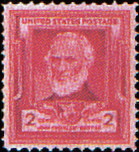John Greenleaf Whittier
 John Greenleaf Whittier, the most active poet of the era, had a
background very similar to Walt Whitman's. He was born and raised
on a modest Quaker farm in Massachusetts, had little formal
education, and worked as a journalist. For decades before it
became popular, he was an ardent abolitionist. Whittier is
respected for anti-slavery poems such as "Ichabod," and his
poetry is sometimes viewed as an early example of regional
realism.
John Greenleaf Whittier, the most active poet of the era, had a
background very similar to Walt Whitman's. He was born and raised
on a modest Quaker farm in Massachusetts, had little formal
education, and worked as a journalist. For decades before it
became popular, he was an ardent abolitionist. Whittier is
respected for anti-slavery poems such as "Ichabod," and his
poetry is sometimes viewed as an early example of regional
realism.
Whittier's sharp images, simple constructions, and ballad- like tetrameter couplets have the simple earthy texture of Robert Burns. His best work, the long poem "Snow Bound," vividly recreates the poet's deceased family members and friends as he remembers them from childhood, huddled cozily around the blazing hearth during one of New England's blustering snowstorms. This simple, religious, intensely personal poem, coming after the long nightmare of the Civil War, is an elegy for the dead and a healing hymn. It affirms the eternity of the spirit, the timeless power of love in the memory, and the undiminished beauty of nature, despite violent outer political storms.
